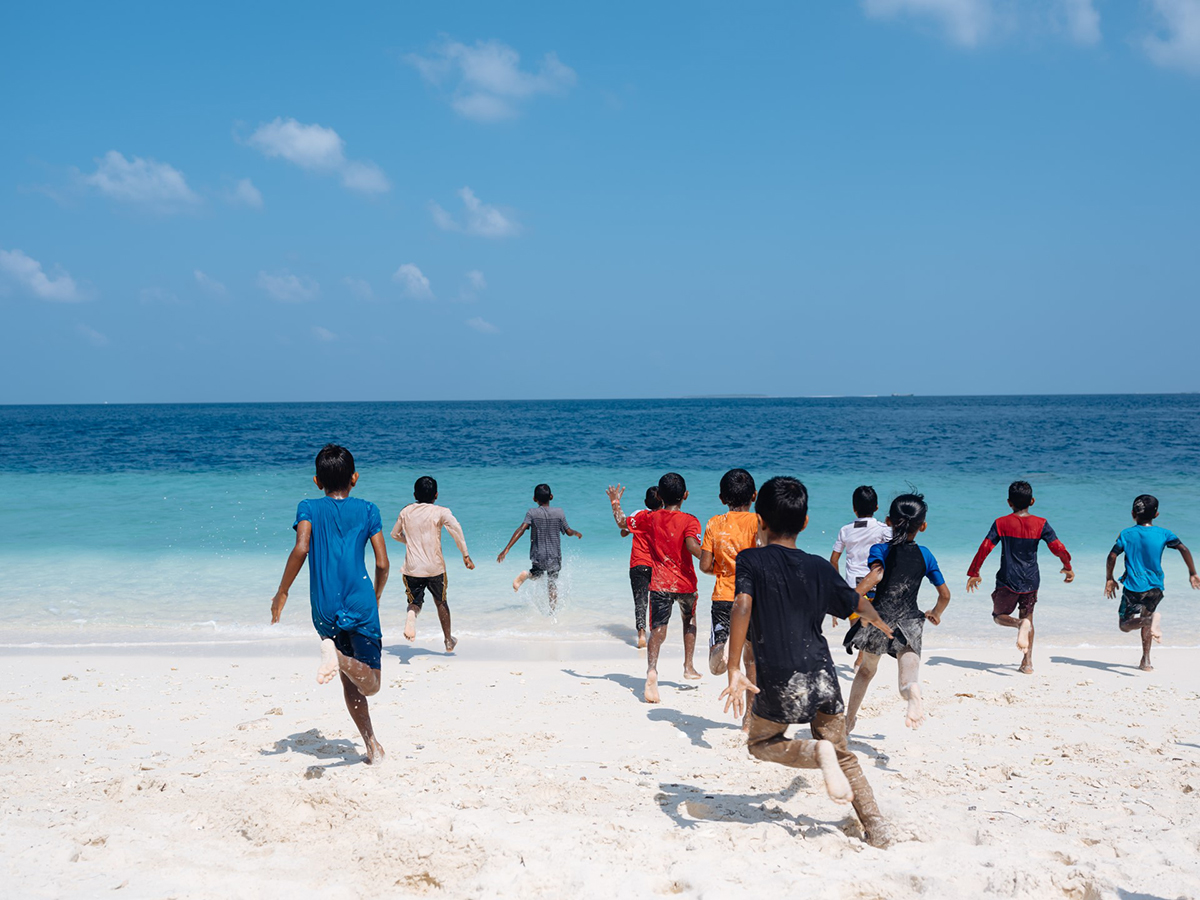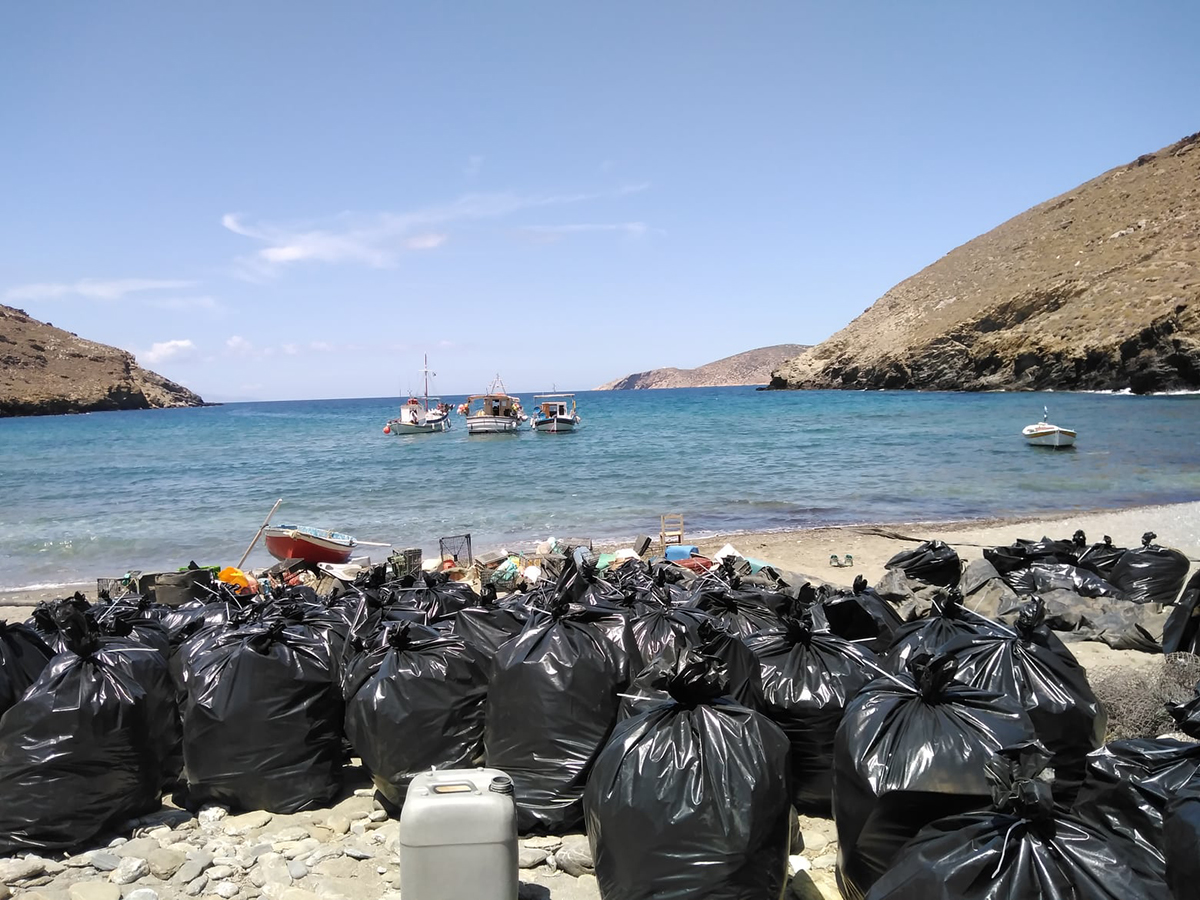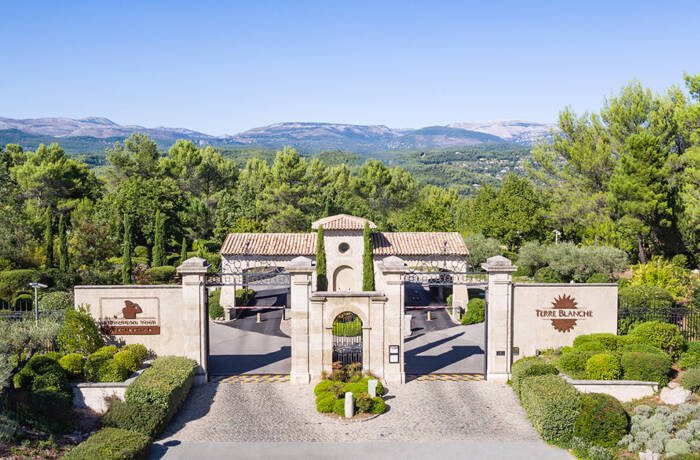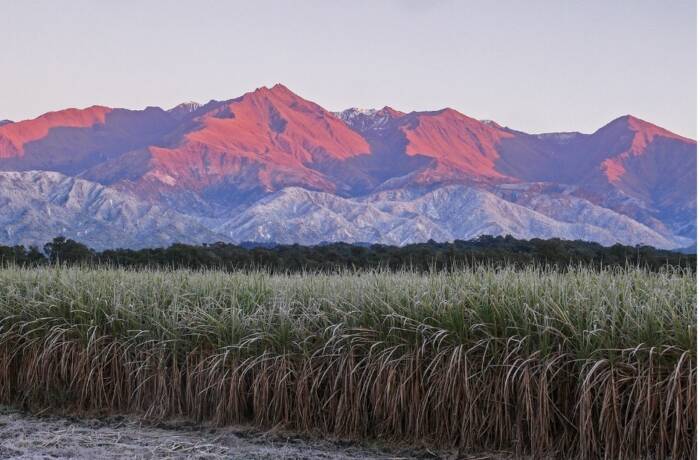
The Cyclades Preservation Fund runs a campaign to protect the vulnerable Posidonia oceanica meadows from anchoring. Courtesy of the Cyclades Preservation Fund
Philanthropy has a key role to play in initiatives to support ocean conservation, and in empowering communities with the ability to make a difference. Here, Darius Sanai outlines the importance of philanthropy, while Chris Stokel-Walker showcases seven philanthropic projects that are making waves
The German philosopher Immanuel Kant liked to talk about the categorical imperative: moral actions that have to be taken and do not broach any argument. Saving the oceans from further harm by humans is a prominent current example of a categorical imperative, one that would also likely receive the approval of moral philosophers from another prominent school of thought, utilitarianism, which espouses acting for the common good.
And significant positive change can be made – or, if you are a follower of Immanuel Kant, must be made – by people acting to their abilities in support of categorical imperatives. Philanthropists, such as those outlined over these pages, use their considerable means to try to make a difference in support of environmental initiatives, particularly in areas where other forms of capital are not able to work.
Follow LUX on Instagram: luxthemagazine
The opportunities to create positive change, and leave a positive legacy, are immense. Philanthropy plays a key role, but works most effectively when it is at its most informed. The links between the chains of planetary and ocean degradation are complex. A zero-emissions container ship can transport invasive species around the world on its hull; sailing yachts destroy carbon-capturing seagrass with their anchors; recycling plastics can produce significant carbon emissions. So it is philanthropists who are as educated on the issues as they are generous, working with carefully-chosen experts, who tend to be the most successful.

Ben Goldsmith
“All across the world, small groups of committed, passionate, effective people are making extraordinary things happen, often on a shoestring budget, and they are nearly always funded by philanthropists,” says Ben Goldsmith, the British environmental campaigner and founder and Chair of environmental charity Conservation Collective. “Philanthropy is the most potent kind of funding, as it comes without any requirement to produce a financial return and has the flexibility to pay for almost any kind of work, from grassroots action to societal movement building. In the right hands, philanthropy can move mountains. This is why it is so important that those with the means to do so give away some of their money – in the most thoughtful and strategic way possible – to those at the cutting edge of changing our world.”
Philanthropic capital is critical to ocean conservation and regenerative initiat

Jacqueline Valouch
ives, says Jacqueline Valouch, Head of Wealth Planning & Philanthropy at Deutsche Bank Wealth Management. “Money provided by philanthropic entities for ocean conservation and regenerative projects allows for early funding, innovation and alignment with the scientific community,” she explains. “By providing much-needed seed capital, philanthropic capital can help to de-risk projects and attract more funding. In these ways, it can help companies and others to restore, renew, conserve and make bigger change.
“Philanthropists are one group of the many stakeholders needed to move the dial on crucial areas of exploration, research (including through scholarship programmes) and innovation,” she continues. “These are initiatives that would not be possible without the dedication and patience of philanthropists.”
Seven Philanthropic Projects In Ocean And Coastal Conservation
1) Deutsche Bank Ocean Resilience Philanthropy Fund
Founder: Deutsche Bank Wealth Management
This Deutsche Bank fund was announced at COP26 in 2021 and launched in 2022. The fund enables philanthropists to engage with scientists on projects to counteract damage to ocean and coastal ecosystems by supporting projects that use nature-based, rather than man-made, solutions. An advisory council of expert scientists and Deutsche Bank personnel review and select grant recommendations for projects. The first such project, the Future Climate Coral Bank, managed by the non- profit Maldives Coral Institute, aims to identify corals that are resilient to bleaching caused by warming, and create a gene bank to support global reef restoration.
2) Walton Family Foundation Oceans Initiative
Founder: Walton Family Foundation
Walmart founders Sam and Helen Walton knew all too well how much the earth’s waters contribute to their supermarket’s success, and the company’s foundation has sought to help ensure the health of the planet’s water for the future. Its Oceans Initiative is supporting 14 fisheries to adopt more sustainable practices, and has lobbied in Japan, the European Union and the United States to encourage buyers to purchase more sustainably sourced seafood. “We believe that the people closest to the problem are also critical to finding solutions,” says Teresa Ish, Head of the Walton Family Foundation Oceans Initiative.
Read more: Richard Spinrad on moving towards a blue planet
3) Salesforce ocean Sustainability Programme
Founder: Marc Benioff
Global cloud software company Salesforce has run its Ocean Sustainability programme since CEO Marc Benioff began it in 2021. At COP26, Salesforce committed to buying one million tons of blue carbon credits and is investing $100 million in grants to The Ocean Foundation, the National Fish and Wildlife Foundation and Wetlands International over 10 years – as well as investing in 1t.org, including a Guatemalan project to support sustainable livelihoods for 400 families. “Ocean health translates to the safety of our family, loved ones and communities around the globe, and the ability for them to thrive,” says Dr Whitney Johnston, Director of Ocean Sustainability at Salesforce.
4) Common Seas
Founders: Filippos and Andonis Lemos
The Lemos brothers are Greek shipping magnates – so they are aware of the biodiversity beneath the ocean surface. And they are conscious of the impact that plastics entering our waters have on the wildlife within. To help combat this, the Lemos siblings co-founded and are major donors to Common Seas, whose vision is to eradicate plastic from the oceans. Common Seas’ collaborative initiatives include partnering with governments to reduce plastic pollution; helping the tourism industry reduce its plastic use; and supporting education providers both to make their schools plastic free and to raise awareness among young people of the importance of keeping our oceans clean of pollution.

Common Seas incorporates education as part of their strategy to remove plastics from the oceans
5) Galapagos Life Fund
Founder: Pew Bertarelli Ocean Legacy Project
The Galápagos Life Fund (GLF) is one of the crowning achievements of the Pew Bertarelli Ocean Legacy Project, a joint initiative from the independent non-profit The Pew Charitable Trusts and investor and philanthropist Dona Bertarelli. It was set up with the shared goal of establishing the first generation of large, ecologically significant and effective marine- protected areas (MPAs) around the world. The GLF converts $1.6 billion in commercial debt into a loan, capitalised by a $656 million marine conservation-linked bond, generating more than $450 million to support marine conservation in the Galápagos Islands over the next 20 years.
6) Cyclades Preservation Fund
Founder: Conservation Collective
Nearly 220 islets and islands make up the Cyclades in the Aegean, which are home to a range of natural habitats being harmed by modern life. The largely female-led team behind the Cyclades Preservation Fund is part of Conservation Collective, a global network of philanthropic funds helping to preserve the natural environment. CPF programmes focus on biodiversity, education, local identity and marine conservation – all with the participation of local stakeholders. Among its biggest wins is supporting the establishment of a grassroots fishing protected area around the island of Amorgos, sustaining a local industry while keeping the marine population healthy.

Cyclades Preservation Fund Supports the fishers of Amorgos towards their vision for seas with more fish and less plastic
7) Plastic Free Ibiza and Formentera
Founder: Ibiza Preservation
Ibiza is a major hub for tourism, which buoys up the economy but has significant environmental impacts. In the west coast, there are 4.5 million pieces of microplastics in every square kilometre of sea – 30 times more than elsewhere in the Mediterranean. Nearly three-quarters of the waste collected on Spanish Mediterranean beaches is plastic. Set up in 2018, Plastic Free Ibiza and Formentera, promoted by Ibiza Preservation, is made up of 14 main members including local non-profits, and aims to eliminate single-use plastic in the islands by supporting citizens, administrations and businesses to promote sustainable practices. Initiatives include the certification of local companies as plastic-free.
This article first appeared in the Deutsche Bank Supplement of the Autumn/Winter 2023/2024 issue of LUX magazine



